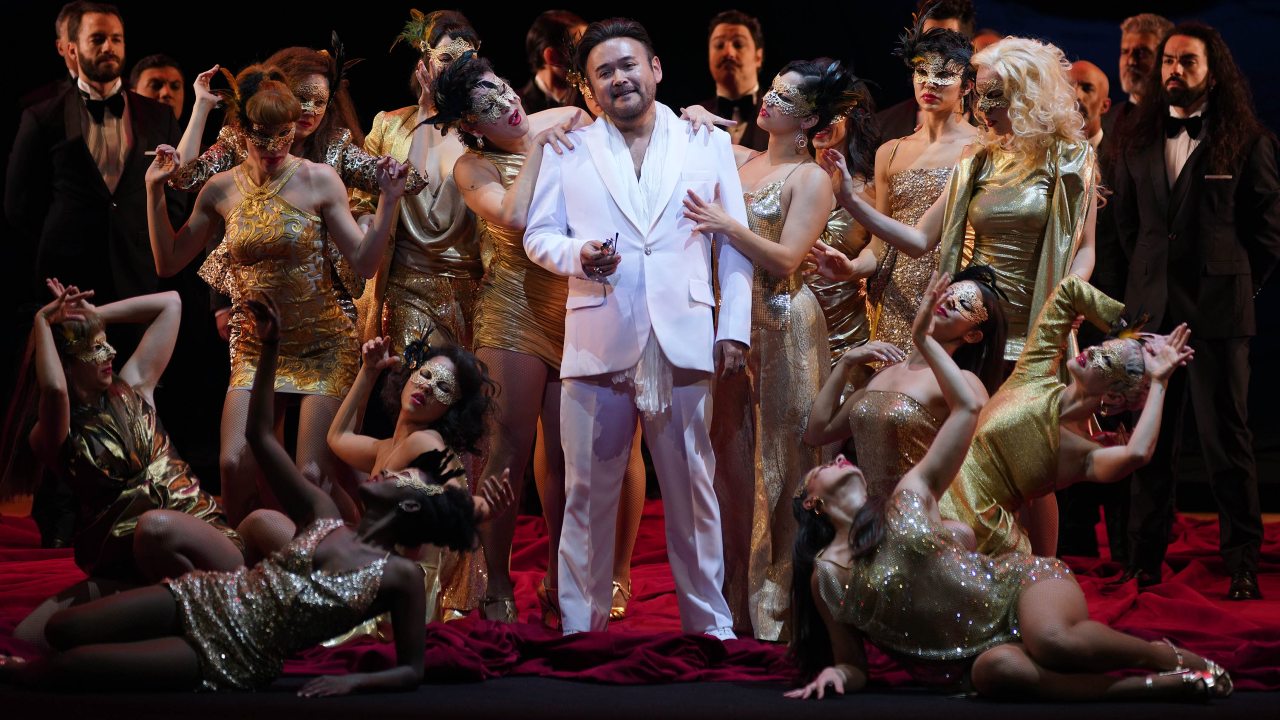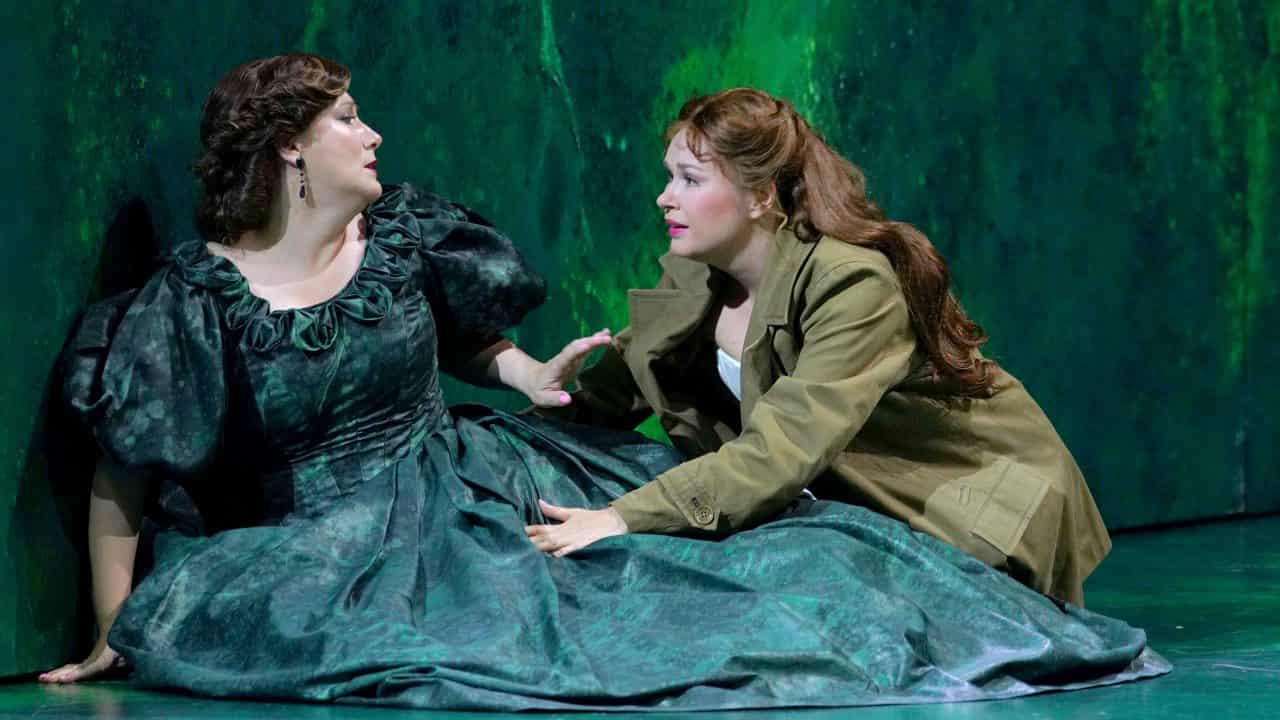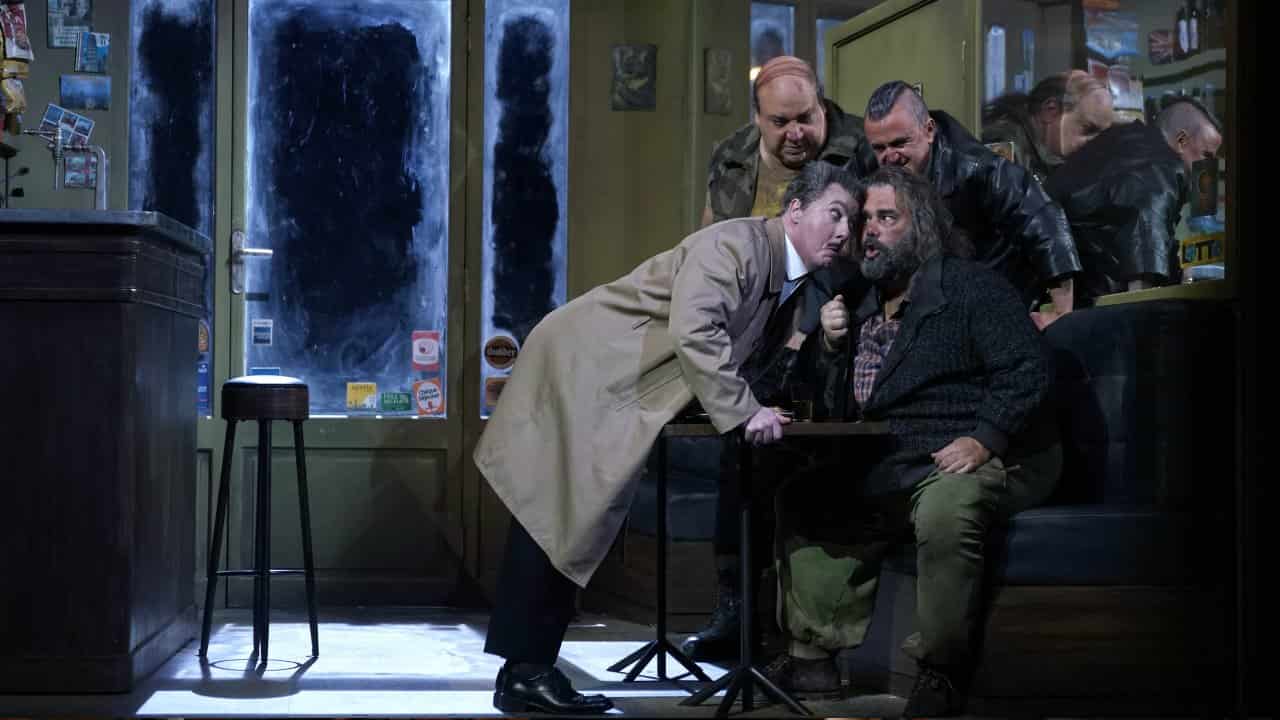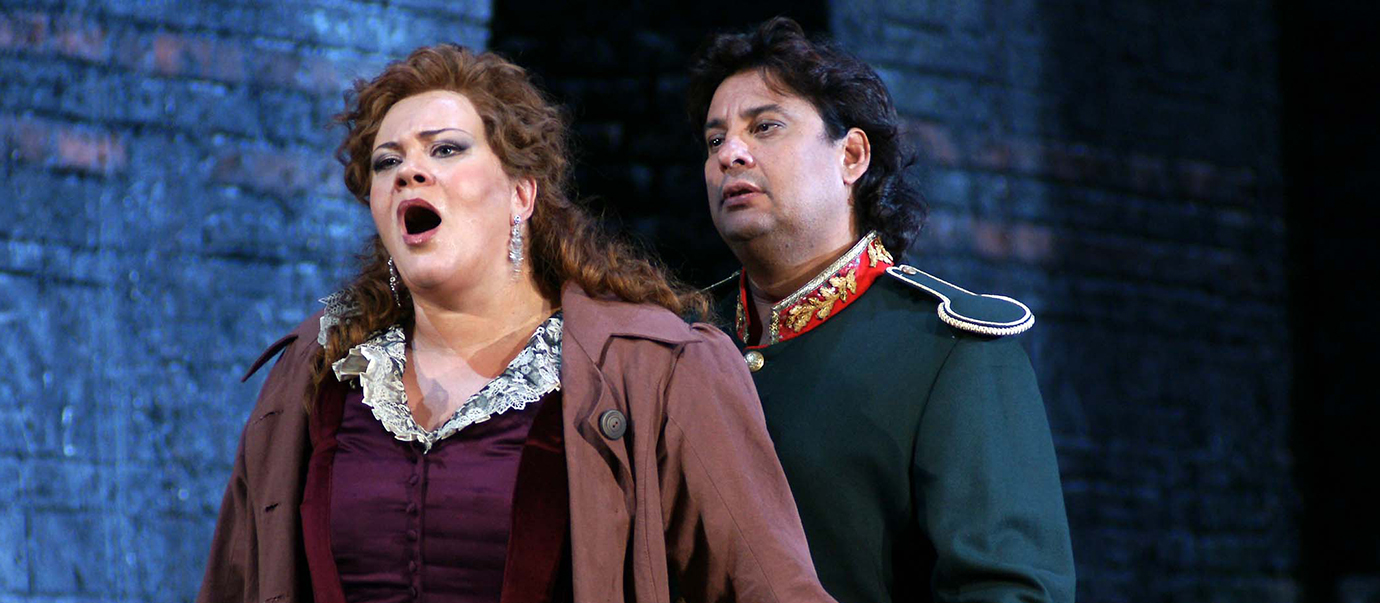La traviata, one of Verdi's best-known works, takes to the stage at the Teatro Real in Willy Decker's iconic production.
A passionate love story between Violetta, a courtesan, and Alfredo, set in Paris. Their happiness is threatened by society and Violetta's tuberculosis, which ultimately kills her. The death of the prima donna in the final act of an Italian romantic melodrama would normally require a magnificent scene with choruses, a lyrical cantabile, and a vibrant cabaletta. Verdi had already rejected this old formula in his Nabucco, but in La traviata he took a bolder step by giving his leading lady some simple French-style couplets: the heartbreaking aria “Addio del passato” could be explained by the Parisian setting of this work, but Verdi's dramatic instinct would also be emphasizing the class differences between the “queens” of romantic melodrama and this flesh-and-blood woman, whose stigma condemns her to a lonely and anonymous death, in an exercise of theatrical realism unparalleled even in the decades to come.
Opera in three acts
Music by Giuseppe Verdi (1813-1883)
Libretto by Francesco Maria Piave, based on The Lady of the Camellias by Alexandre Dumas Jr
Premiered at the Teatro La Fenice in Venice on 6 March 1853
Premiered at the Teatro Real on 1 February 1855
Produced by the Dutch National Opera & Ballet
Artistic team
Conductor: Henrik Nánási
Stage direction: Willy Decker
Set design and costumes: Wolfgang Gusmann
Costumes: Susana Mendoza
Lighting: Hans Toelstede
Choreography: Athol John Farmer
Replacement of set design: Thomas Bruner
Chorus master: José Luis Basso
Cast
Violetta Valéry: Adela Zaharia
Flora Bervoix: Karina Demurova
Annina: Gemma Coma-Alabert
Alfredo Germont: Xabier Anduaga
Giorgio Germont: Artur Rucinski
Gastone de Letorières: Albert Casals
Barone Douphol: Tomeu Bibiloni
Marchese d'Obigny: David Lagares
Dottore Grenvil: Giacomo Prestia
Giuseppe: Joan Laínez
Teatro Real Chorus and Orchestra





